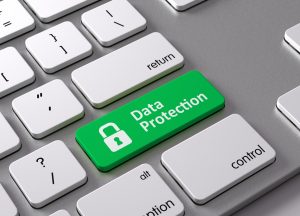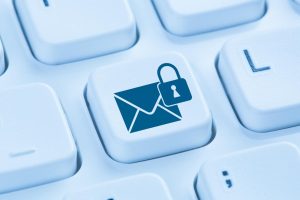While today’s collaborative platforms and chat facilities are employed to help colleagues and clients communicate, email still spearheads the way organisations and institutions interact. From law firms sending documents that need signing, to businesses sending mailing contracts for outsourced work, there are numerous emails sent containing sensitive information.
Ensuring only the sender and their intended recipient have access to an email’s contents is vital not just to safeguard company information, but to ensure organisations are compliant with data protection regulations.
Read on to find four advantages of adopting encryption as part of your organisation’s security measures.
1. Protect confidential information
First and foremost, encryption can protect sensitive information sent by email. Encryption is designed to control who can view content by providing user identities with access rights. To decrypt the content in an email, the user must pass the authentication process. This means that if an email is intercepted by a cybercriminal or unauthorised individual, they will not be able to read or view the information within it.
Emails can contain all kinds of confidential data, from banking and credit card details that can be used to misappropriate funds, to personal information that can help hackers create believable phishing attacks. Encryption is one of the most powerful tools for ensuring your data is still safe if it falls into the wrong hands.
2. Negate message tampering
While some emails do not contain sensitive information, they can still be used by threat actors able to access them. Hackers can edit and alter emails for their purposes, or simply save your message and resend later changing its context to gain the information they seek to steal. Recipients of such emails can easily be fooled into disclosing sensitive information, believing it comes from a trusted source. Email encryption can guard against this with recipients always able to verify the sender of an email and ensure the content within it is trustworthy.
3. Safeguard against identity theft
Phishing strategies are commonly used by cybercriminals to harvest user credentials, giving them access to an individual’s emails. By reading a user’s emails, a hacker can glean sensitive company information and gain personal details that allow them to impersonate the user. They can then contact the user’s colleagues and penetrate a company’s security even deeper. Encryption can make sure that, if a hacker succeeds in gaining control of a user’s mailbox, they will not be able to view the data stored there for malicious attacks.
4.Bolster your backup files
Emails sent are stored on Simple Mail Transfer Protocol (SMTP) servers. Text versions of emails are saved on the backup disks of the outgoing server and can be stored for years at a time. If a hacker gains access to the disks, they will be able to view email content even when users have deleted the messages from their mailboxes. However, if the emails are encrypted, they will remain secure.



